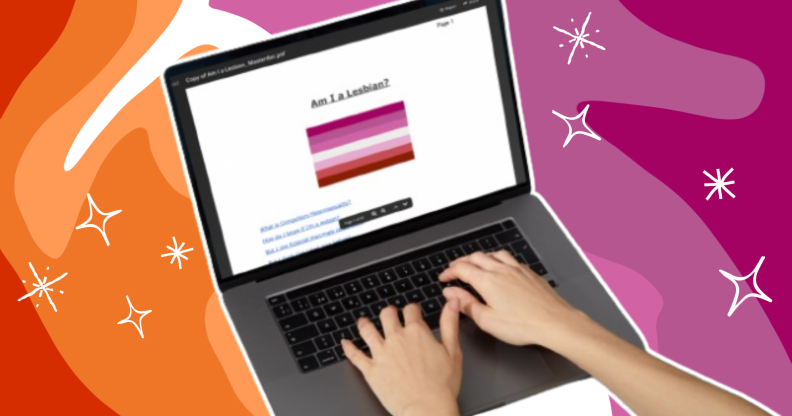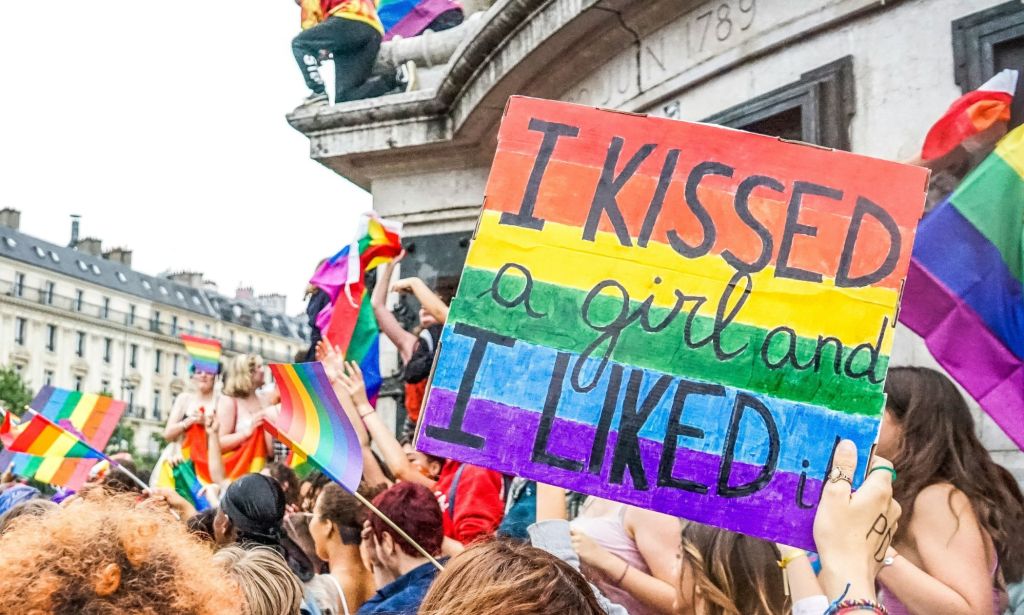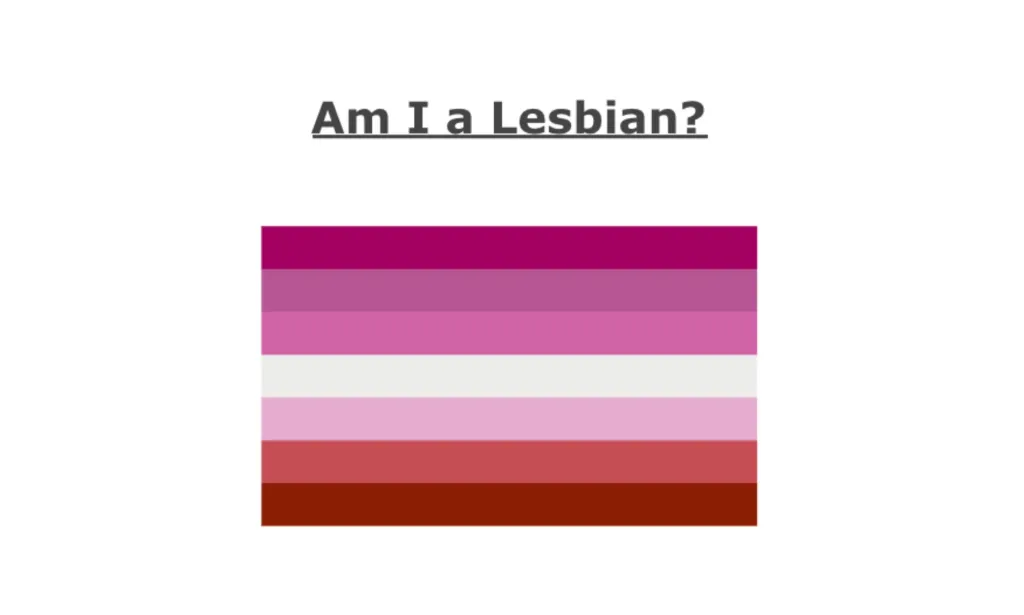How the Lesbian Masterdoc helped a generation of lesbians like me to come out

Ione Gildroy is an ambassador for Just Like Us (Ione Gildroy/Canva)
You might have heard of the Lesbian Masterdoc. The document is a popular file in the queer community that breaks down compulsory heterosexuality and lays out why you might be, or might not be, a lesbian.
It was created in 2018 by Angeli Luz – who then went by the alias @cyberlesbian – when she was just a teenager, and was first shared on Tumblr as a Google Doc (it now exists as a PDF that routinely goes viral across social media).
Many queer women have opened up about how the Masterdoc was responsible for them coming out and realising their sexuality. Reneé Rapp, who plays Regina George in the new Mean Girls film, recently came out as a lesbian after previously identifying as being bisexual, and has said in several interviews that the document influenced her relationship with her sexuality.
Singer Kehlani has also said the Masterdoc, sent to her by a friend, was responsible for her realisation that she is gay.
Personally, I can relate to both of these stories.
I struggled with my sexuality throughout my teens and am only now, at the age of 21, becoming really comfortable with it. I finally understand how I actually feel, not what I was conditioned to feel. It takes a lot of time and effort to reverse the way of thinking that you’re used to and comfortable with, to accept that maybe you are not heterosexual.

Compulsory heterosexuality can be difficult to understand, especially for teenagers and young people, but the beauty of the Lesbian Masterdoc is that it’s widely accessible, easy to understand, and lays things out in a clear way. For many of my generation, it was transformative in figuring out the effects that “comp-het” has had on your life.
I was about 16 when the Lesbian Masterdoc was first shared on Tumblr. I spent a lot of time in online communities on Tumblr and Wattpad when I was a teenager, and remember first discovering it there. I later stumbled across it again when a friend sent it to me after I told her of the doubt and confusion I felt about my sexual orientation.
The first few times I read the Masterdoc, I wasn’t ready to admit to myself that I could be a lesbian, or have any romantic feelings for women at all, so I spent a good few years trying to deny it and ignore these thoughts.
My lesbian peers have had similar experiences, with one friend, Mimi, telling me: “The Lesbian Masterdoc was something I’d sort of heard about but I didn’t really know what it was. I had a quick little look at it quite a few times, then closed it the moment it started to feel a bit too relatable.
“I was reading it quite a while before I had given my sexuality any proper thought, and definitely a while before I was ready to accept it and be open about being a lesbian.”

I finally came out as bisexual last year, but it wasn’t until the start of this year, after I properly reread the Masterdoc, that I started to realise that more and more of the things I identified with were leading me to question whether I ever liked men. This time, my friend told me to read it after I said something to her about questioning my attraction to men.
So many parts of the Masterdoc made more sense to me this time. The parts that focus on attraction, and how to recognise it, really stood out for me, and helped me decipher my feelings.
Part of the Lesbian Masterdoc’s enduring legacy is the sense of community it creates. A lot of queer people who have used it say they were sent it by a friend, and, while I have never (yet) forwarded it on to anyone I think needs it, I know many people who have used it to not only come to terms with their own identities, but also to help others do the same.
The Masterdoc’s popularity does, however, point to the huge lack of resources for young LGBTQ+ people. For many, it helped us access information that wasn’t available at home or at school, and to see that there were others out there with similar experiences.
Reading the Masterdoc, and seeing so much online discourse around the ideas presented in it, has made me feel so much less alone. It’s not just me feeling these things, I’m not broken, I’m not just in a phase or seeking attention.
The Masterdoc provided me with a sense of community, of belonging, of understanding, that feels important when it can be difficult to find these things in real life. I wouldn’t have come out without reading the Masterdoc, and I wouldn’t be anywhere close to as comfortable in my sexuality as I am now.
It has helped so many people to recognise and pinpoint their feelings, enabling them to come out and live as their true selves.
Ione volunteers as an ambassador for Just Like Us, the LGBTQ+ young people’s charity. If you’re 18-25 and LGBTQ+, you can sign up here.

